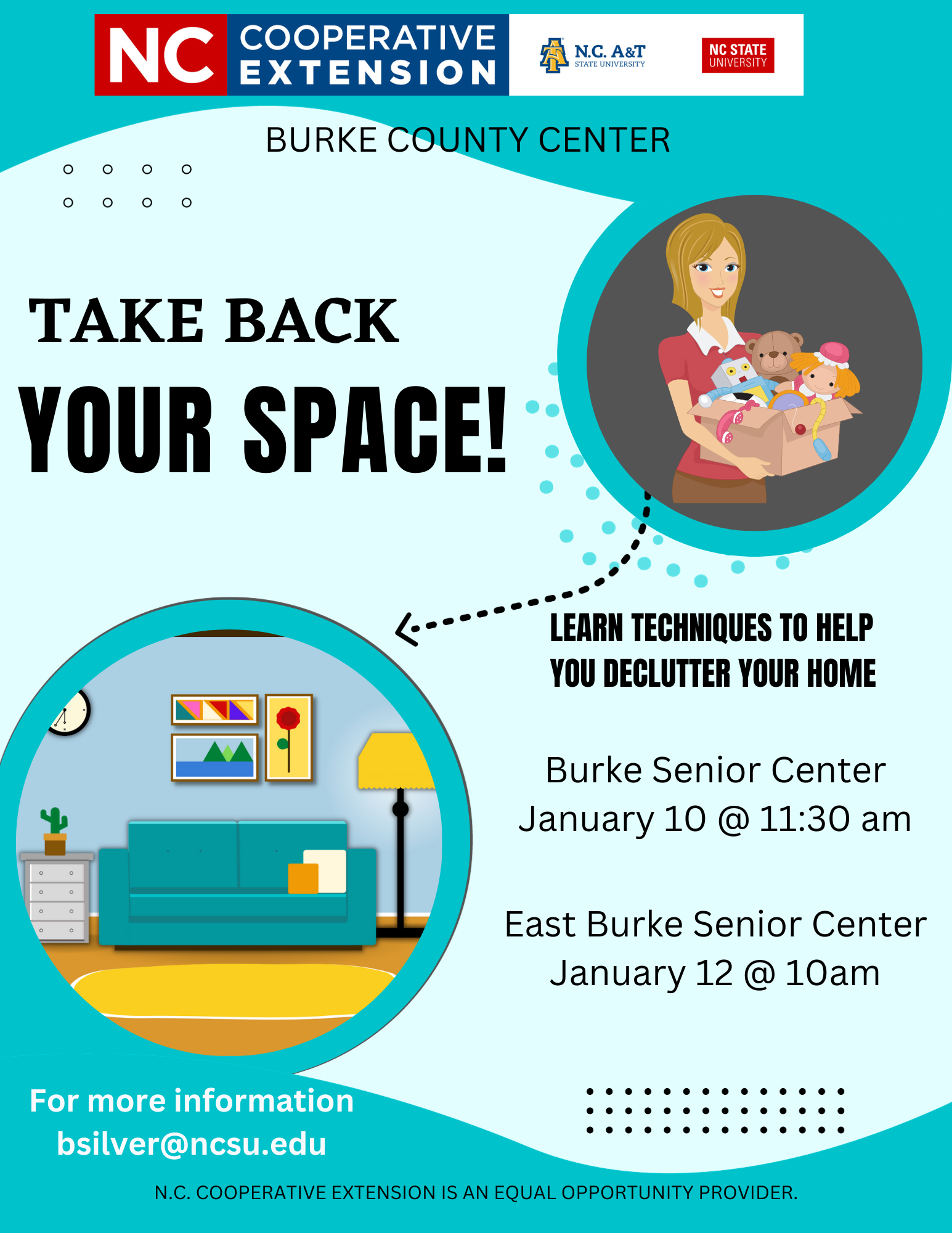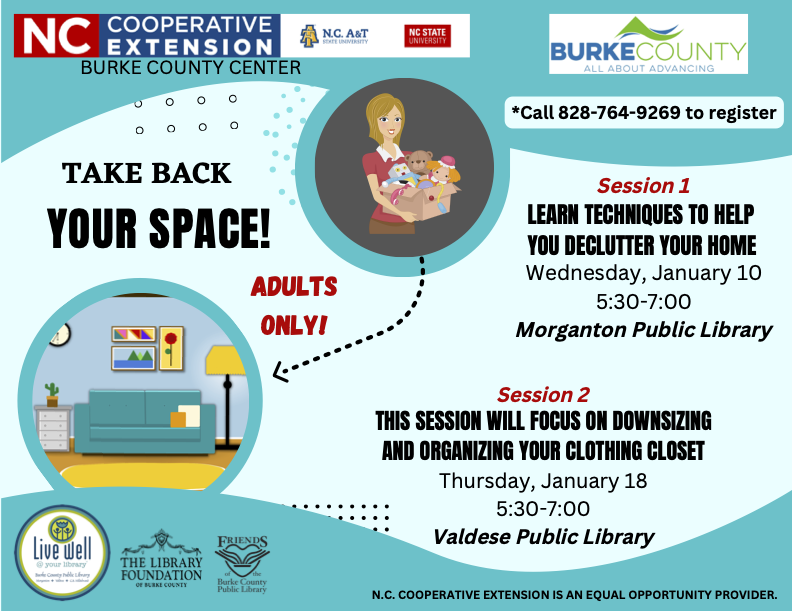Tidying Up Your Environment to Improve Your Mental Well Being
go.ncsu.edu/readext?977273
en Español / em Português
El inglés es el idioma de control de esta página. En la medida en que haya algún conflicto entre la traducción al inglés y la traducción, el inglés prevalece.
Al hacer clic en el enlace de traducción se activa un servicio de traducción gratuito para convertir la página al español. Al igual que con cualquier traducción por Internet, la conversión no es sensible al contexto y puede que no traduzca el texto en su significado original. NC State Extension no garantiza la exactitud del texto traducido. Por favor, tenga en cuenta que algunas aplicaciones y/o servicios pueden no funcionar como se espera cuando se traducen.
Português
Inglês é o idioma de controle desta página. Na medida que haja algum conflito entre o texto original em Inglês e a tradução, o Inglês prevalece.
Ao clicar no link de tradução, um serviço gratuito de tradução será ativado para converter a página para o Português. Como em qualquer tradução pela internet, a conversão não é sensivel ao contexto e pode não ocorrer a tradução para o significado orginal. O serviço de Extensão da Carolina do Norte (NC State Extension) não garante a exatidão do texto traduzido. Por favor, observe que algumas funções ou serviços podem não funcionar como esperado após a tradução.
English
English is the controlling language of this page. To the extent there is any conflict between the English text and the translation, English controls.
Clicking on the translation link activates a free translation service to convert the page to Spanish. As with any Internet translation, the conversion is not context-sensitive and may not translate the text to its original meaning. NC State Extension does not guarantee the accuracy of the translated text. Please note that some applications and/or services may not function as expected when translated.
Collapse ▲In today’s busy world, where we’re constantly bombarded with information, taking
care of our mental well-being is more important than ever. Albert Einstein’s quote,
“If a cluttered desk is a sign of a cluttered mind, of what, then, is an empty desk a
sign?” is questioned by the extensive two-decade research conducted by
psychology professor Sabine Kastner. Her findings reveal that visual clutter
competes with the brain’s focus, leading to cognitive fatigue over time. Kastner’s
innovative experiments demonstrated that the brain’s neurons activate based on
what individuals are seeking, suppressing other contextual information. In essence,
the brain experiences a constant push and pull, where desired objects dominate
attention while competing objects create cognitive strain. Contrary to Einstein’s
humorous remark, a clean desk may not indicate an empty mind but rather a
decluttered space that allows the mind to focus and function more effectively.
Decluttering your environment has a really positive impact on your mental health.
It’s like a secret weapon for feeling better!
The Cortisol Connection
Scientific studies have established a clear link between clutter and stress
hormones, particularly cortisol. Cortisol is released in response to stress, and
chronic elevation can lead to a range of physical and mental health issues. A study
conducted by the Princeton University Neuroscience Institute found that a
cluttered environment overwhelms the brain and impairs its ability to process
information, contributing to heightened stress levels. Decluttering, on the other
hand, has been associated with reduced cortisol levels, providing a tangible
pathway to stress reduction.
The Mind-Body Connection
The mind-body connection is a fundamental aspect of holistic well-being. A
cluttered environment can contribute to a sedentary lifestyle and hinder physical
activity, which is closely tied to mental health. By decluttering, individuals create a
space that encourages movement and physical well-being. This, in turn, positively
impacts mood and cognitive function.The scientific proof endorsing the beneficial
effects of decluttering on mental health is strong. These advantages, ranging from
lowering stress hormones to improving cognitive function and emotional well-being, go beyond just maintaining an orderly living space. In our pursuit of mental wellbeing amid the hustle of modern life, decluttering stands out as a potent and easily accessible method to nurture a composed, attentive, and robust mind.
A few tips to get you started:
1. Organizing is not one size fits all so adopt a system that works for you and
your family and can be easily maintained by everyone in your home or office.
2. Beginning the process is the most difficult so find something that motivates
you. It could be getting out the door efficiently in the morning or tidying
the tupperware cabinet so 25 lids have 25 matching containers. Take small
wins to increase motivation.
3. Set a timer. Commit 10-20 minutes to work in a space without distractions.
When the timer goes off, you can leave the project but I bet you will want
to finish!
4. When you decide to let go of your possessions, get them out of the house.
You can arrange for a donation pick up or simply load them in the back of
your car to drop off the next time you go out OR you can drive around with
your possessions for a few weeks like I do. The key is, the things are not in
your home to become reabsorbed.
5. Be mindful of new things. A good rule many highly organized people follow is,
one in, one out. This is a great strategy to maintain your tidy home.
If you are interested in learning more about how to declutter and maintain a tidy
space there are several opportunities to attend classes at local libraries and senior
centers through the Burke Cooperative Extension in the month of January. You
can also reach out to Brandi Silver (bsilver@ncsu.edu), family and consumer
sciences agent for additional resources.






